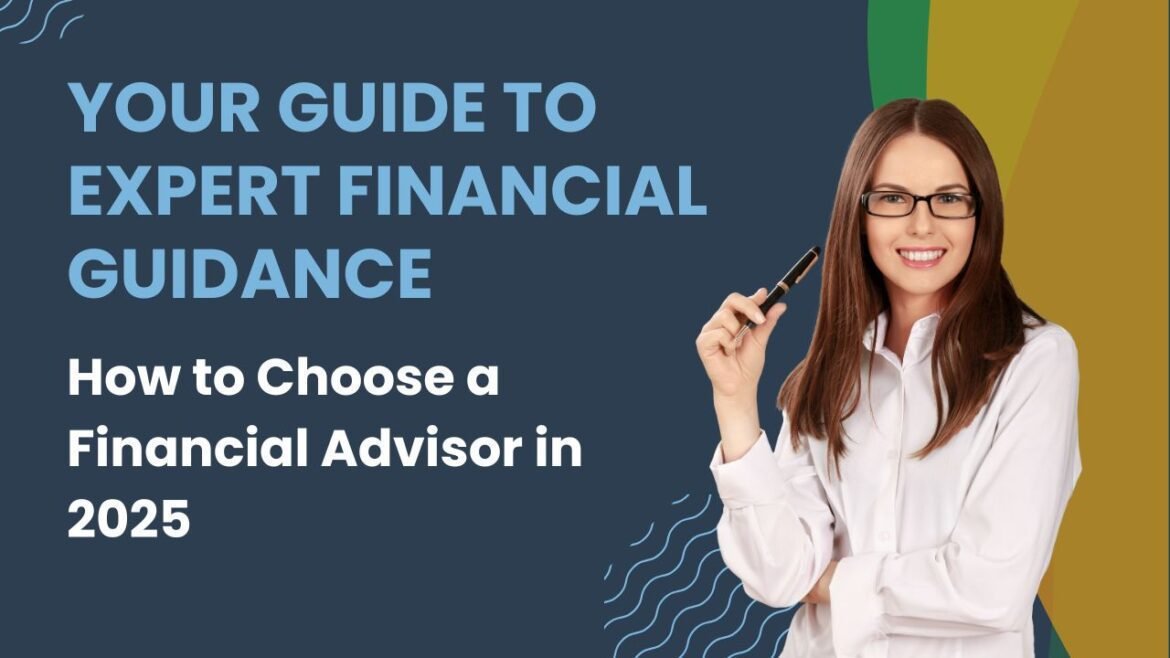In the increasingly complex financial world of 2025, navigating investments, retirement planning, taxes, and debt can be overwhelming. For many, seeking professional help is not just beneficial, but essential. But the question remains: how to choose a financial advisor who is not only knowledgeable but also trustworthy and aligned with your unique financial goals? This decision is one of the most critical steps you can take towards securing your financial future.
The term “financial advisor” can encompass a wide range of professionals, from investment brokers to comprehensive financial planners. Understanding the distinctions, their compensation structures, and their certifications is key to making an informed choice. A good advisor acts as your guide, helping you make smart decisions, avoid costly mistakes, and build a robust financial plan tailored to your aspirations.
This comprehensive guide will walk you through how to choose a financial advisor in 2025, providing actionable steps to identify, vet, and select the right expert for your needs. We’ll cover crucial questions to ask, different fee structures, and the importance of finding a fiduciary financial advisor who always puts your best interests first.
Why You Might Need a Financial Advisor in 2025
Even with abundant online resources, a financial advisor offers personalized expertise that can be invaluable:
- Complex Financial Situations: Managing significant assets, multiple income streams, or intricate tax situations.
- Retirement Planning: Ensuring you’re on track for a comfortable retirement. Explore retirement options: Roth IRA vs. 401(k): Which Retirement Account is Best for Young Investors?.
- Investment Management: Building and managing a diversified portfolio.
- Debt Management: Creating strategies to tackle significant debt. Get help with debt: Navigating Debt Consolidation Loans: A Comprehensive Guide to Lowering Your Payments.
- Major Life Events: Planning for marriage, children, home purchase, or career changes.
- Lack of Time or Expertise: If you don’t have the time or confidence to manage your finances yourself.
- Emotional Discipline: An advisor can help you avoid emotional decisions during market volatility. Understand market swings: The Beginner’s Guide to Stock Market Volatility: How to Invest During Uncertain Times.
Step-by-Step Guide: How to Choose a Financial Advisor
- Define Your Needs and Goals:
- What specific financial challenges do you face?
- What do you want to achieve (e.g., save for retirement, buy a house, pay off debt, invest wisely)?
- What level of involvement do you want (full-service, occasional advice)?
- Understand Different Types of Advisors:
- Financial Planner: Helps with comprehensive financial planning (budgeting, retirement, investments, insurance, estate). Many hold the Certified Financial Planner (CFP®) designation.
- Investment Advisor/Manager: Focuses primarily on managing your investment portfolio.
- Broker: Facilitates buying and selling investments, often compensated by commissions.
- Robo-Advisor: Automated, algorithm-driven investment platforms (good for beginners, lower cost).
- Prioritize Fiduciary Duty:
- A fiduciary financial advisor is legally obligated to act in your best interest, always. This is crucial.
- Non-fiduciary advisors (like some brokers) only need to recommend “suitable” products, which might not be the absolute best for you if a commission is involved.
- Always ask: “Are you a fiduciary?” and “Will you sign a fiduciary oath?”
- Research and Get Referrals:
- Online Directories:
- National Association of Personal Financial Advisors (NAPFA):
https://www.napfa.org/(Fiduciary-only advisors) - Certified Financial Planner Board of Standards:
https://www.cfp.net/ - Fee-Only Network:
https://www.feeonlynetwork.com/
- National Association of Personal Financial Advisors (NAPFA):
- Referrals: Ask friends, family, or other professionals (accountants, attorneys) for recommendations.
- Online Directories:
- Interview Several Candidates (at least 2-3):
- Compensation Structure: This is critical.
- Fee-Only: Charges a flat fee, hourly rate, or percentage of assets under management (AUM). No commissions. Generally preferred for objectivity.
- Fee-Based: Charges fees and can earn commissions. This can create conflicts of interest.
- Commission-Based: Paid solely by commissions on products sold. Highest potential for conflicts of interest.
- Experience & Specialization: How long have they been in business? Do they specialize in clients like you (e.g., pre-retirees, small business owners, high-net-worth)?
- Credentials: Look for CFP® (Certified Financial Planner), CFA (Chartered Financial Analyst), ChFC (Chartered Financial Consultant), CPA (Certified Public Accountant – if they offer financial planning).
- Client Communication: How often will you meet? How do they prefer to communicate?
- Investment Philosophy: Does their approach align with your risk tolerance and goals?
- References: Ask for references from current clients.
- Compensation Structure: This is critical.
- Check Background and Disciplinary Actions:
- Use FINRA’s BrokerCheck:
https://brokercheck.finra.org/ - SEC’s Investment Adviser Public Disclosure (IAPD):
https://adviserinfo.sec.gov/ - CFP Board’s website:
https://www.cfp.net/verify-a-cfp-professional
- Use FINRA’s BrokerCheck:
Questions to Ask Potential Advisors:
- Are you a fiduciary? Will you sign a fiduciary oath?
- How are you compensated? Please explain all fees.
- What is your investment philosophy?
- What services do you provide?
- What is your typical client profile?
- How often will we meet, and how will we communicate?
- What are your professional credentials and experience?
- Can you provide references?
Conclusion: Securing Expert Financial Guidance in 2025
Deciding how to choose a financial advisor in 2025 is a significant investment in your financial future. It requires diligence, research, and a clear understanding of your own needs. By prioritizing a fiduciary financial advisor who is transparent about their fees and whose philosophy aligns with yours, you can build a trusted partnership.
Take the time to interview multiple candidates, verify their credentials, and ensure you feel comfortable and confident in their guidance. With the right expert by your side, you can navigate the complexities of personal finance with ease, make informed decisions, and confidently work towards achieving your most ambitious financial goals.
Discover more from Motive Money
Subscribe to get the latest posts sent to your email.
